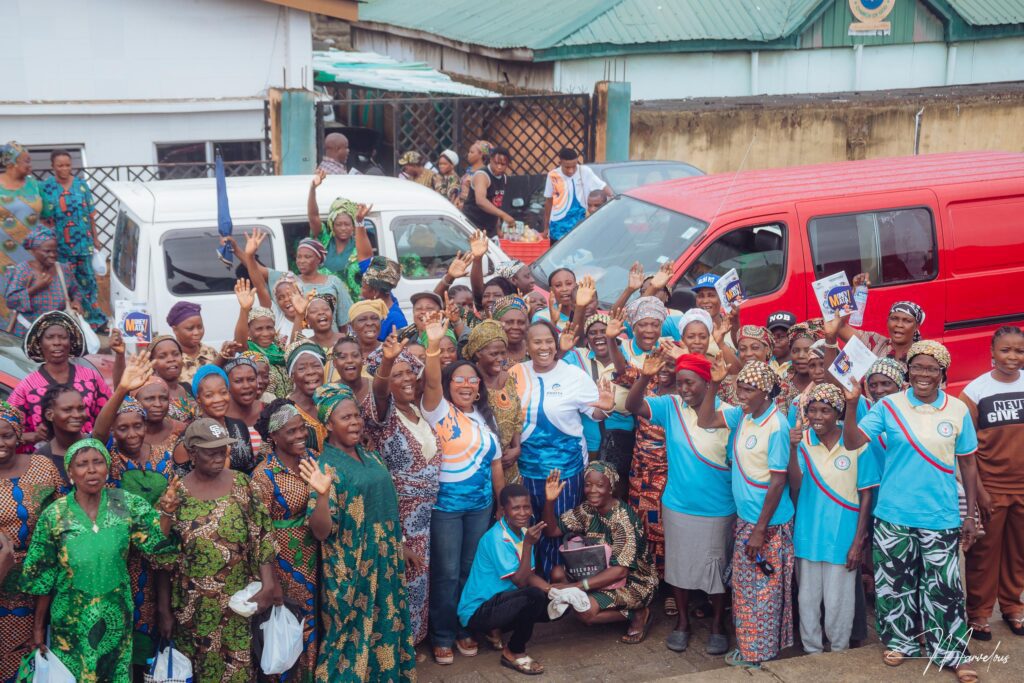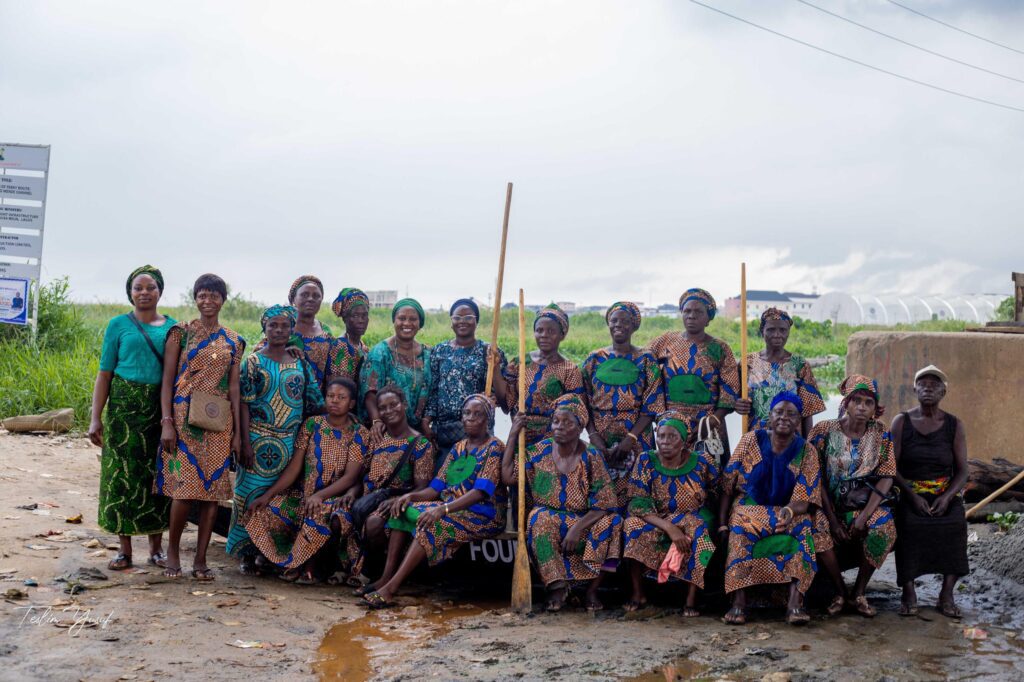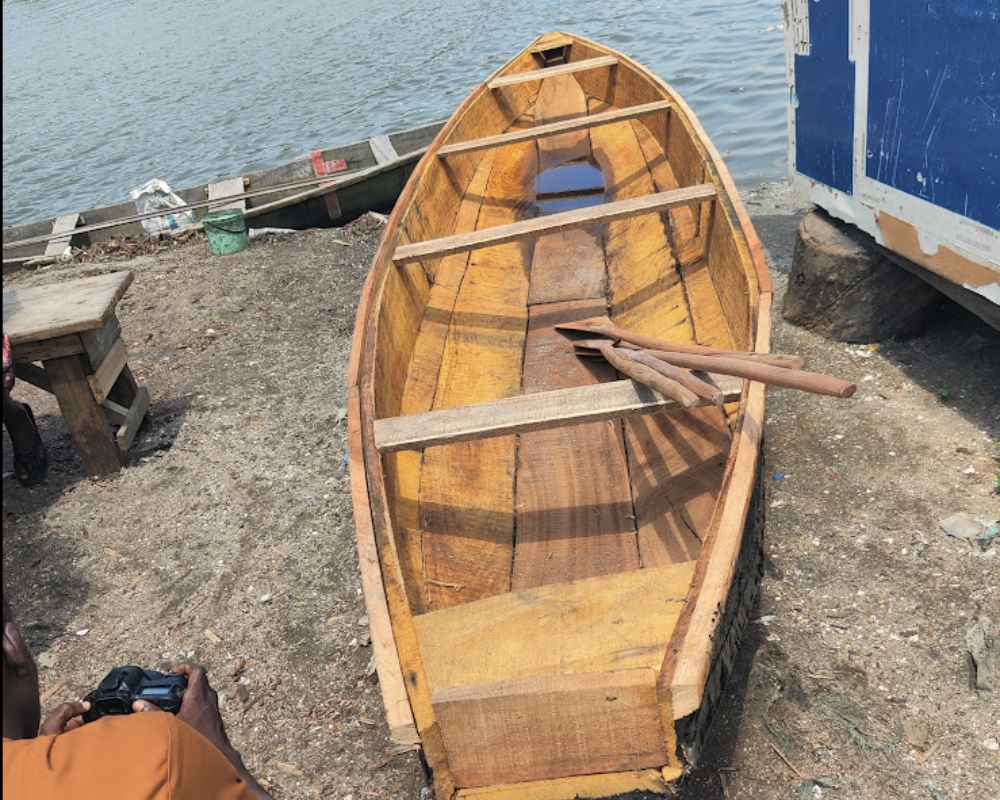
Women Who Fish: How Enatta Foundation is Raising Empowered Fisherwomen
Women do fish. No, it is not just fishing in small waterbodies using scooping nets. I mean fishing that involves the use of boats and large nets. Lagos State, amongst Nigeria’s other coastal communities, has a sizable number of fisherwomen who contribute to the food system and Nigeria’s local economy. Despite the estimated 47% of women involved in capture fisheries in Nigeria, the Nigerian fisheries sector has been proven by studies to be gender biased regarding prominence in participation. The male fisherfolks often dominate the scene and occupy important positions which include control and access to productive resources of fishing systems. They are in possession of the fishing vessels and equipment used in the capture fisheries sector. In essence, they rule that world. Many times, these roles confer on them pecuniary benefits such as investment opportunities, loan facilities, importing and exporting licences, among others.
Regardless of women’s economic potential in small-scale fisheries, investments by women in the artisanal, aquaculture and industrial fishing sectors are at terribly low levels. Fisherwomen most times play the second-fiddle role of processing and marketing while depending on fishermen for major decisions. This reveals the underlying socio-cultural norms and gender relations replete in the fishing sector. Furthermore, these create intersectionality which is a factor that most often impedes the women’s opportunities to own, access to or control productive resources and other inputs. Gender mainstreaming in the fisheries sector is unfortunately still a major problem in Nigeria and thankfully, Enatta Foundation is one out of many organisations that is redirecting the tide of the narrative.
Enatta Foundation’s Role in Raising Empowered Fisherwomen
Foundation is a nonprofit organization committed to empowering underserved fisherwomen in Nigeria’s coastal communities through sustainable livelihoods, financial and environmental initiatives. Having witnessed the hardship that comes with not only being a woman, but being a fisherwoman in Nigeria; the lack of access to the tools and opportunities freely given to the male fisherfolk, and the inability to stand as independent entities, social entrepreneur, Mrs Adijat Okuyelu founded the organisation to empower fisherwomen, in partnership with private and government establishments.
Over the years, Enatta Foundation has recorded a profound impact on the lives of these fisherwomen through several initiatives and projects, some of which include:
The Boat Project
The Boat Project is a cornerstone initiative by Enatta Foundation aimed at directly enhancing the fishing capacity and economic sustainability of fisherwomen. Through this project, the Foundation has provided durable, locally built boats and essential fishing gear to fisherwomen in Lagos’ fishing communities such as: Isale-Akoka, Ilaje-Ebute, Ago-Egun, Oworonshoki, Ogudu, Araromi, Agboyi and Ajegunle. The impact of this initiative is significant, has kick-started economic activities and has been shown to increase the income of these women by 60-100%.
Prawn Catchers Initiative
This is another transformative initiative designed to empower fisherwomen by providing them with prawn catchers in order to maximize their participation in the prawn catching season. This initiative has created a ripple effect that has benefited entire families and communities leading to enhanced food security and greater opportunities for future generations.
Money Mata Programme
Enatta Foundation has contributed in raising empowered fisherwomen through its Money Mata programme. This focuses on financial literacy and business empowerment for riverine women. It also addresses the lack of fundamental financial education, tools and networks that often hinder fisherwomen from scaling their operations and building lasting wealth. The programme equips women with practical, hands-on knowledge in personal finance management, record keep and very importantly, participation in established cooperative groups.
Water Hyacinth Removal Initiative
Addressing environmental constraints is a key aspect of the Enatta Foundation’s work. Through this initiative, the Foundation investigates problem areas along Lagos’ waterways and partners with organisations to collect and recycle water hyacinths which are invasive aquatic plants that hinder environmental sustainability and economic stability for the women.
Post-Harvest Storage Initiative
The foundation has also distributed refrigeration units to fisherwomen as part of its post-harvest initiative. The project provides refrigeration units and polystyrene boxes to fishing communities, in order to reduce food spoilage, as well as to mitigate post-harvest fish loss. This initiative is transforming livelihoods by reducing spoilage and increasing economic stability for underserved fishing communities.
The Boat Regatta
The Enatta Foundation celebrates the resilience and cultural heritage of coastal women through a structured and inclusive Boat Regatta that fosters social recognition, cultural exposure and stakeholder engagement. The Foundation also provides an avenue for scalability by opening the women up to access high value markets through this initiative.
Food Parcel Distribution
Food parcels are also distributed to fisherwomen, individuals and families in underprivileged communities by the Foundation. This initiative is aimed at alleviating poverty in underserved communities in Nigeria.

In conclusion, Enatta Foundation’s work with fisherwomen exemplifies how grassroots development can intersect with national priorities on food security, gender equity and environmental sustainability. By addressing systemic barriers, equipping women with knowledge and tools and promoting inclusive economic models, the Foundation is helping to reshape the narrative around riverine fisherwomen. The Foundation continues to expand its reach and impact through strategic partnerships and actively seeks support and collaboration to further its mission. They encourage individuals and organizations to join hands with them to create lasting change and shape a brighter future for fisherwomen and their communities in Nigeria.
is a non-profit organization birthed from the initiatives of Enatta Foods Ltd, a food production and export company in Lagos state committed to trends in agriculture export business and educating people about opportunities within the sector.
Our Process
- Choose your favourite cause
- Register to our website
- Donate the amount you like
- Stay tuned about cause


Leave a Reply